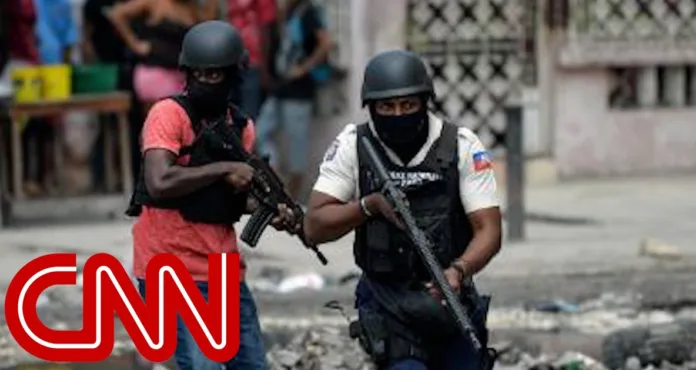As Haiti’s security crisis intensifies, understanding the armed groups’ rise and their political ambitions becomes crucial for crafting effective solutions
In recent times, Haiti has found itself at the epicentre of a burgeoning security crisis, with armed groups asserting dominance over the capital, Port-au-Prince, and challenging the authority of state institutions. These developments have not only paralyzed the city but have also cast a long shadow over the nation’s political landscape. This deep dive aims to unpack the complex web of Haiti’s armed gangs, exploring their origins, motivations, and the broader implications of their rise for the country’s future.
The Evolution and Dominance of Haitian Gangs
The Rise of Armed Groups:
Haitian gangs have long been a fixture in the country’s socio-political fabric, historically linked to political parties, businessmen, and other elite factions. However, their evolution has seen them transition from mere tools of political manoeuvring to autonomous entities with significant control over urban territories, especially Port-au-Prince.
Control and Crisis:
Today, gangs like the G9 Family and Allies, led by Jimmy “Barbecue” Cherizier, and GPep, under Gabriel Jean-Pierre, exert control over approximately 80 percent of the capital. Their dominance has plunged Haiti into a protracted crisis, with these groups orchestrating violent attacks on police stations, prisons, and other institutions.
Political Dynamics and Gang Ambitions
The Political Vacuum:
The assassination of President Jovenel Moise in 2021 created a power vacuum, exacerbating the crisis. Gangs have since made increasingly bold political demands, including the resignation of Prime Minister Ariel Henry. Their opposition to foreign intervention and stated ambitions to play a role in Haiti’s governance highlight a shift towards seeking legitimate political influence.
Autonomy and Financing:
Experts point to gangs’ ability to independently amass wealth through extortion, kidnappings, and drug trafficking as key to their autonomy. This financial independence has enabled them to dictate terms to political actors, further complicating efforts to address the crisis.
Addressing the Crisis: Challenges and Perspectives
The Role of International Intervention:
Proposals for a multinational armed force, led by Kenya and backed by the United Nations, to support the Haitian police have been met with resistance from gang leaders. The complexity of the security situation, intertwined with the population, raises questions about the efficacy of a forceful approach.
Socio-Economic Underpinnings:
Experts argue that the gang problem cannot be disentangled from Haiti’s broader socio-economic challenges. High unemployment, lack of opportunities, and systemic inequality have fueled the gangs’ ranks and influence. Addressing these root causes is essential for a long-term solution.
Towards a Dual-Track Approach:
Solving Haiti’s security crisis requires a nuanced strategy that balances immediate security needs with political and economic reforms. Strengthening state institutions, ensuring stable leadership, and engaging in meaningful dialogue with armed groups are pivotal steps. However, the path forward must be led by Haitians, with international support tailored to bolster Haiti’s sovereignty and institutional capacity.
As Haiti navigates this critical juncture, the international community’s role, the feasibility of negotiations with gangs, and the effectiveness of potential security missions remain central themes. The emergence of a transitional government and the subsequent steps it takes could be decisive in charting a course out of the crisis. But, as history has shown, any solution that fails to address the underlying socio-economic disparities and political fragmentation is unlikely to yield lasting peace and stability.
